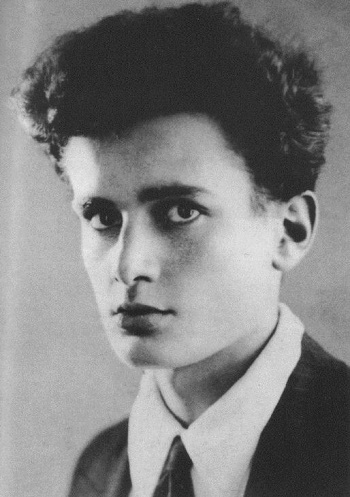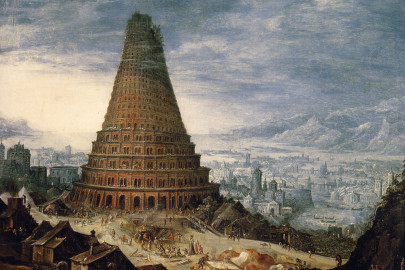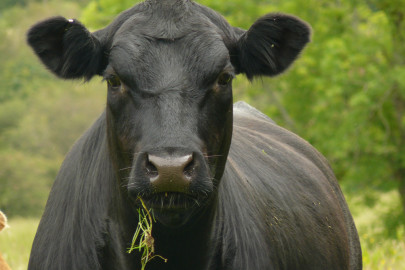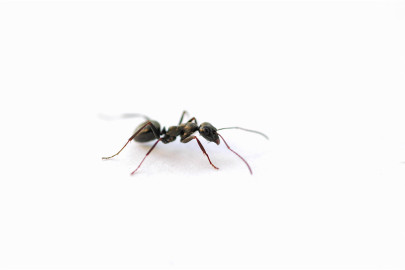This week, Frank discovers Philip O’Connor, surrealist poet, monkey-fearer and author of a brilliant memoir…
I have never watched a single episode of the BBC soap opera EastEnders, so I had no idea who Cockney matriarch Lou Beale was. I do, however, read obituaries with great interest, including those of people of whom I have never heard. And when reading the Guardian obituary of Anna Wing, the actress who played Lou Beale, I learned that “between 1953 and 1960, she was the partner of the surrealist poet Philip O’Connor” and “she encouraged [him] to write his first book, the extraordinary Memoirs of a Public Baby (1958)”.
I had never heard of O’Connor either, and my interest was piqued – rightly so, I realised, when I read his 1998 obituary in The Independent. Here I learned, among other things, that his mother abandoned him twice during his childhood, and the second time
he was again adopted, this time by a one-legged bachelor civil servant who wore size 13 boots and owned a small wooden hut on Box Hill near Dorking
and that
The impression that he created as a young man in wartime Fitzrovia was of utter precariousness. As thin as a skeleton, his face already eroded, his smile never calm, he lived off doughnuts and Woodbines, ogled at women and spoke in cryptograms, spoonerisms and jingles, delivering sentences backwards and falling about in drunken exhilaration
and
Many people knew him simply as The Man Who Stood Behind The Door And Said “Boo!” To T.S. Eliot
Who could read those snippets and not want to read the Memoirs? Self-consciously “bohemian” drunkard poets are tiresome, particularly when convinced of their own genius, and no doubt in person O’Connor was – as Stephen Spender says in his introduction to the Memoirs – “a menace”. But they can also, sometimes, write wonderful books, and Memoirs Of A Public Baby – what I have read of it so far – is one.
Over half of the book is devoted to O’Connor’s “prematurity”, taking him up to his teenage years. We learn, among other things, of his
lasting fear of monkeys . . . feeling horribly near to them and that I have a secret they might discover which would involve me in some unconscious activity consequent upon the discovery of a bond between us.
For all the examination of his inner life – written with forensic acuity mercifully free of Freudy platitudes – he is also splendid when describing the external scene. That little wooden hut on Box Hill where he lived with his one-legged guardian, for example:
The hut on the hill was in a fairly detached part of a holiday camp, the most “select” of several on this hill in Surrey. The signs of this selectiveness were the wide spaces between the huts; their decorum in colour and lack of fantasy in architecture; and the absence of radios (though the loudspeaker was still young), and the quality and size of the cars arriving at week-ends; and the good-quality plus-fours of the younger set. They were, in fact, of the class most disliked by my guardian, mostly prosperous shopkeepers, with a sprinkling of teachers, whom he also didn’t like. It fairly pleased him not to like anyone in the camp except a certain scoutmaster. This was the quintessence of scoutmasters, and I feel certain he came from Roehampton, because of a particular greenhouse wildness in his appearance (I caught him acquiring a tropical tan artfully behind a bush once). He liked to stand most erect on the brow of the plateau and scan the horizon, eyes narrowed, ready, I believe, for eventualities.
As for the guardian himself:
It was around this year [1927] that my guardian considered Madame Blavatsky, spiritualism, psychoanalysis, fascism, communism, and philately; the last two were to endure.
O’Connor is sent to the school at the bottom of the hill:
as I was to discover, a typical ecclesiastical laundry of rexine culture for the soaping out of human juices.
These brief extracts alone convince me that O’Connor is worth rescuing from obscurity. Note, too, a passing remark in the Independent obituary, where we are told that in later life, he “dabbled interestingly with chickens”.
A shorter version of this piece first appeared on Frank’s Hooting Yard blog.












a typical ecclesiastical laundry of rexine culture for the soaping out of human juices – pretty brilliant.
I wonder whether he was dabbling with chickens in respect of their husbandry or dabbling with them on some other project entirely.
Perhaps he was a closet chicken-sexer, you know, frying pan full of hot fat, dip ’em in two at a time, only a …. would sit in a frying pan full of hot fat.
It’s the best I can do, honestly.
“He liked to stand most erect on the brow of the plateau and scan the horizon, eyes narrowed, ready, I believe, for eventualities.”
Sounds like an ancestor of Elberry.
When I first heard of Philip O’Connor I was curious about his poetry. I couldn’t find any books of poems by him and wondered, for a while, whether he was a hoax – either someone pretending to be a poet and being rather a pain in the process, or a completely fictional character, the invention of some denizen of the Colony Room, perhaps. In the end I did find some of his poems, in Robin Skelton’s Penguin anthology Poetry of the Thirties, but I’ve had little success in excavating meaning from them. The Memoirs sound more enticing after all.